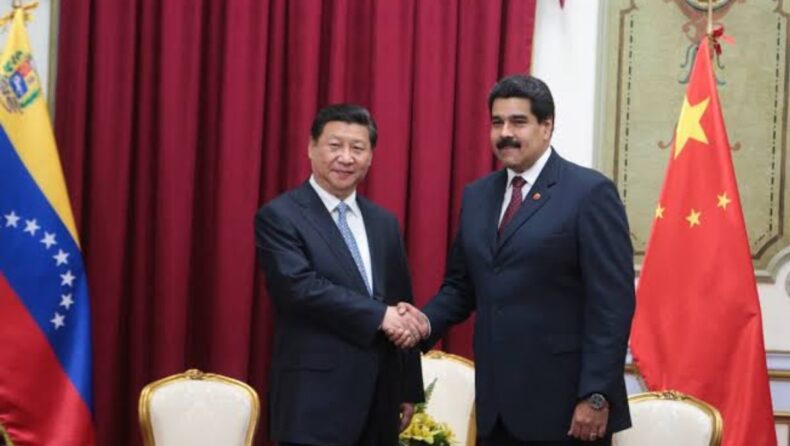In a significant diplomatic move, China has elevated its diplomatic ties with Venezuela to an ‘all-weather’ partnership, a label reserved for a select few of its diplomatic allies. This development unfolded during Venezuelan President Nicolas Maduro’s state visit to Beijing, his fifth as president, where he held crucial talks with Chinese President Xi Jinping.
Table of Contents
The Significance of the ‘All-Weather’ Partnership
An ‘all-weather’ partnership, as highlighted by this announcement, underscores a deep and enduring commitment between nations, one that remains resilient in the face of political changes and external pressures. This strategic alliance carries immense importance on the global stage.
Bilateral Agreements: Belt and Road Projects and More
During their meeting, President Maduro and President Xi signed a series of bilateral agreements that extend cooperation into several crucial areas. These include collaborative efforts in Belt and Road projects, strengthening economic ties, enhancing trade, and promoting educational exchanges. The exact details of these agreements were not disclosed in the official statement.
Expanding Trade Relations
China’s willingness to increase imports of Venezuelan products demonstrates a strong commitment to fostering economic cooperation. This is a significant development, as Venezuela heavily relies on oil as its primary export, and these trade prospects could provide a much-needed boost to its economy.
Venezuela’s Lunar Aspirations
In a unique addition to their partnership, Venezuela has become the first Latin American country to join China’s International Lunar Research station project. This long-term endeavor aims to study the moon extensively, further solidifying the cooperation between the two nations in areas beyond Earth.

Parallel with China’s Other Strategic Partnerships
China’s move to upgrade its partnership with Venezuela draws parallels with its well-known all-weather strategic partnership with Pakistan, where China has invested a substantial USD 25.4 billion over the past decade. This highlights the depth and significance of China’s commitment to its select partners.
The Venezuela Challenge
Venezuela has faced complex political and humanitarian challenges over the past decade, resulting in approximately 7 million people leaving the country in search of better prospects. This mass exodus has strained the nation’s resources and infrastructure, making international alliances crucial for its recovery.
The Role of U.S. Sanctions
The United States imposed sanctions on Venezuela, primarily targeting its oil sector. However, last year, the Biden administration began to ease some of these sanctions, signaling a notable shift in its approach towards the South American nation. This change in stance reflects a broader diplomatic strategy aimed at engaging with Venezuela more constructively. The easing of sanctions has opened up possibilities for improved diplomatic relations and greater humanitarian assistance, offering a glimmer of hope in the ongoing efforts to address the complex political and humanitarian challenges that have plagued the country for the past decade.
Maduro’s China Connection
President Maduro has consistently cultivated China as a valuable ally during his tenure. Venezuela has received substantial support from China, including loans, financial assistance, and significant investments amounting to tens of billions of dollars. This support has played a pivotal role in sustaining the Venezuelan economy.
In conclusion, China’s decision to upgrade its diplomatic ties with Venezuela to an ‘all-weather’ partnership signifies a strategic shift in global alliances. This move has profound implications for both nations, as it deepens economic cooperation and opens new avenues for collaboration. Additionally, it underscores China’s growing influence in Latin America and its commitment to forging resilient partnerships in an ever-changing geopolitical landscape. As Venezuela grapples with its ongoing challenges, this partnership could hold the key to its future recovery and development.














